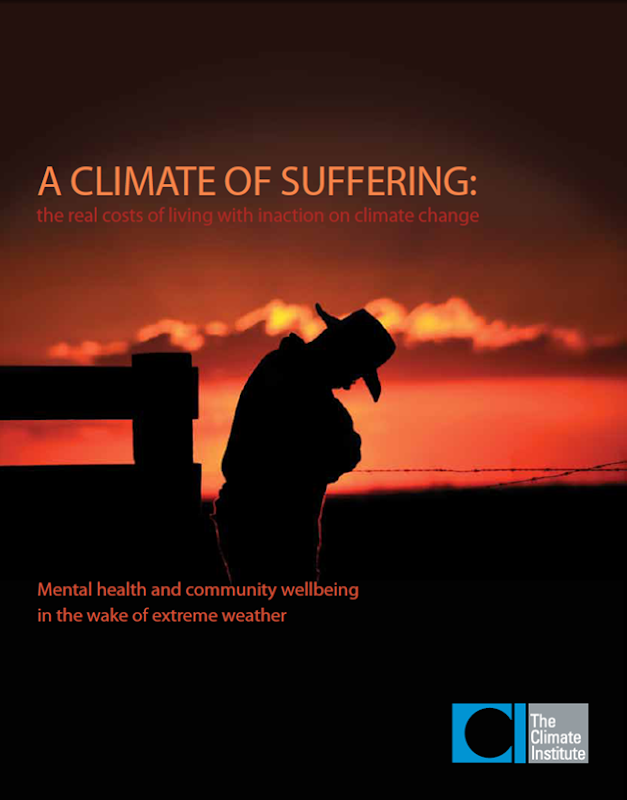Mental illness rise linked to extreme weather events and changing climate
By Erik Jensen Health
29 August 2011 RATES of mental illnesses including depression and post-traumatic stress will increase as a result of climate change, a report to be released today says. The paper, prepared for the Climate Institute, says loss of social cohesion in the wake of severe weather events related to climate change could be linked to increased rates of anxiety, depression, post-traumatic stress and substance abuse. As many as one in five people reported ”emotional injury, stress and despair” in the wake of these events. The report, A Climate of Suffering: The Real Cost of Living with Inaction on Climate Change [pdf], called the past 15 years a ”preview of life under unrestrained global warming”. ”While cyclones, drought, bushfires and floods are all a normal part of Australian life, there is no doubt our climate is changing,” the report says. ”For instance, the intensity and frequency of bushfires is greater. This is a ‘new normal’, for which the past provides little guidance … ”Moreover, recent conditions are entirely consistent with the best scientific predictions: as the world warms so the weather becomes wilder, with big consequences for people’s health and well-being.” The paper suggests a possible link between Australia’s recent decade-long drought and climate change. It points to a breakdown of social cohesion caused by loss of work and associated stability, adding that the suicide rate in rural communities rose by 8 per cent. The report also looks at mental health in the aftermath of major weather events possibly linked to climate change. It shows that one in 10 primary school children reported symptoms of post-traumatic stress disorder in the wake of cyclone Larry in 2006. More than one in 10 reported symptoms more than three months after the cyclone. […]
